
The British Isles are a group of islands in the North Atlantic off the north-western coast of continental Europe, consisting of the islands of Great Britain, Ireland, the Isle of Man, the Hebrides and over six thousand smaller islands. They have a total area of 315,159 km2 (121,684 sq mi) and a combined population of almost 72 million, and include two sovereign states, the Republic of Ireland, and the United Kingdom of Great Britain and Northern Ireland. The Channel Islands, off the north coast of France, are sometimes taken to be part of the British Isles, even though they do not form part of the archipelago.
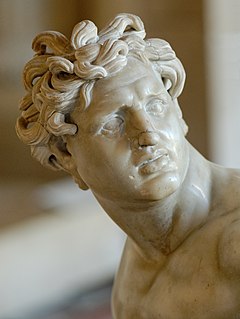
The Celts are a collection of Indo-European peoples in parts of Europe and Anatolia identified by their use of the Celtic languages and other cultural similarities. The history of pre-Celtic Europe and the exact relationship between ethnic, linguistic and cultural factors in the Celtic world remains uncertain and controversial. The exact geographic spread of the ancient Celts is disputed; in particular, the ways in which the Iron Age inhabitants of Great Britain and Ireland should be regarded as Celts have become a subject of controversy. According to one theory, the common root of the Celtic languages, the Proto-Celtic language, arose in the Late Bronze Age Urnfield culture of Central Europe, which flourished from around 1200 BC.
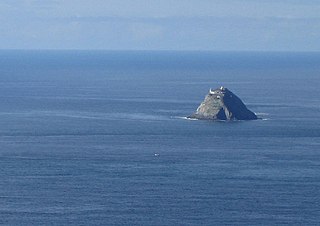
In Irish mythology, Donn is an ancestor of the Gaels and is believed to have been a god of the dead. Donn is said to dwell in Tech Duinn, where the souls of the dead gather. He may have originally been an aspect of the Dagda. Folklore about Donn survived into the modern era in parts of Ireland, in which he is said to be a phantom horseman riding a white horse.

The Isle of Man, also known as Mann, is a self-governing British Crown dependency situated in the Irish Sea between Great Britain and Ireland. The head of state, Queen Elizabeth II, holds the title of Lord of Mann and is represented by a lieutenant governor. The United Kingdom is responsible for the isle's military defence.
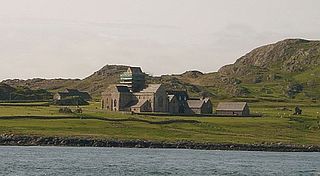
Iona is a small island in the Inner Hebrides off the Ross of Mull on the western coast of Scotland. It is mainly known for Iona Abbey, though there are other buildings on the island. Iona Abbey was a centre of Gaelic monasticism for three centuries and is today known for its relative tranquility and natural environment. It is a tourist destination and a place for spiritual retreats. Its modern Scottish Gaelic name means "Iona of (Saint) Columba".
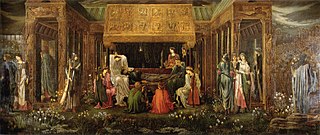
Avalon, sometimes written Avallon or Avilion, is a legendary island featured in the Arthurian legend. It first appears in Geoffrey of Monmouth's 1136 Historia Regum Britanniae as the place where King Arthur's sword Excalibur was forged and later where Arthur was taken to recover from being gravely wounded at the Battle of Camlann. Since then the island has become a symbol of Arthurian mythology, similar to Arthur's castle Camelot.

The music of the Isle of Man reflects Celtic, Norse and other influences, including those from its neighbours, Scotland, Ireland, England and Wales. The Isle of Man is a small island nation in the Irish Sea, between Great Britain and Ireland.
Anglo-Celtic people are descended primarily from British and Irish people. The concept is mainly relevant outside of Great Britain and Ireland, particularly in Australia, but is also used in Canada, the United States, New Zealand and South Africa, where a significant diaspora is located.
The Fortunate Isles or Isles of the Blessed were semi-legendary islands in the Atlantic Ocean, variously treated as a simple geographical location and as a winterless earthly paradise inhabited by the heroes of Greek mythology. The related idea of Brasil and other islands in Celtic mythology are sometimes conflated with the Greek sense of islands in the western Mediterranean: Sicily, the Aeolian Islands, the Aegadian Islands or other smaller islands of Sicily. Later on, the islands were said to lie in the Western Ocean near the encircling River Oceanus; Madeira, the Canary Islands, the Azores, Cape Verde, Bermuda, and the Lesser Antilles have sometimes been cited as possible matches.
In Celtic mythology, the Otherworld is the realm of the deities and possibly also of the dead.

Ancient Celtic religion, commonly known as Celtic paganism, comprises the religious beliefs and practices adhered to by the Iron Age people of Western Europe now known as the Celts, roughly between 500 BCE and 500 CE, spanning the La Tène period and the Roman era, and in the case of the Insular Celts the British and Irish Iron Age. Very little is known with any certainty about the subject, and apart from documented names that are thought to be of deities, the only detailed contemporary accounts are by hostile and probably not-well-informed Roman writers.

The Britons also known as Celtic Britons or Ancient Britons, were indigenous Celtic people who inhabited Great Britain from at least the British Iron Age into the Middle Ages, at which point their culture and language diverged into the modern Welsh, Cornish and Bretons. They spoke the Common Brittonic language, the ancestor to the modern Brittonic languages.
The Manx are a Celtic ethnic group and nation originating in the Isle of Man in the Irish Sea in northern Europe. Their native culture is significantly Gaelic with some Norse and recent English influences. Manx people are Gaels who are an ethnolinguistic group native to Ireland, Scotland, and the Isle of Man in the British Isles.
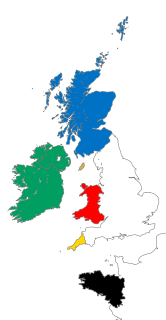
The Celtic nations is a cultural region and collection of geographical territories in Western Europe and the North Atlantic where Celtic languages and/or cultural traits have survived. The term nation is used in its original sense to mean a people who share a common identity and culture and are identified with a traditional territory.

Great Britain is an island in the North Atlantic Ocean off the northwest coast of continental Europe. With an area of 209,331 km2 (80,823 sq mi), it is the largest of the British Isles, the largest European island, and the ninth-largest island in the world. The island is dominated by a maritime climate with narrow temperature differences between seasons. The island of Ireland is situated to the west of Great Britain, and together these islands, along with over 1,000 smaller surrounding islands, form the British Isles archipelago.
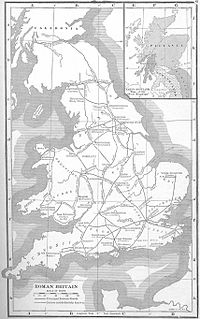
The Insular Celts are the speakers of the Insular Celtic languages, which comprise all the living Celtic languages as well as their precursors, which originated in Great Britain and Ireland. The term is mostly used in reference to the peoples of the British Iron Age prior to the Roman conquest, and their contemporaries in Ireland.
The concept of an otherworld in historical Indo-European religion is reconstructed in comparative mythology. Its name is a calque of orbis alius, a term used by Lucan in his description of the Celtic Otherworld.
Emain Ablach is a mythical island paradise in Irish mythology. It is often regarded as the realm of the sea god Manannán Mac Lir and identified with either the Isle of Man or the Isle of Arran. According to the medieval Irish poem Baile Suthain Sith Eamhna, the god Lug Lamfada was reared in Emain Ablach. In another poem from the 14th century, Emain Ablach is described as being filled with swans and yews.

The modern names of Scottish islands stem from two main influences. There are many names that derive from the Scottish Gaelic language in the Hebrides and Firth of Clyde. In the Northern Isles most place names have a Norse origin. There are also some island place names that originate from three other influences, including a limited number that are essentially English language names, a few that are of Brittonic origin and some of an unknown origin that may represent a pre-Celtic language. These islands have all been occupied by the speakers of at least three and in many cases four or more languages since the Iron Age, and many of the names of these islands have more than one possible meaning as a result.
The water bull, also known as tarbh uisge in Scottish Gaelic, is a mythological Scottish creature similar to the Manx tarroo ushtey. Generally regarded as a nocturnal resident of moorland lochs, it is usually more amiable than its equine counterpart the water horse, but has similar amphibious and shapeshifting abilities.












